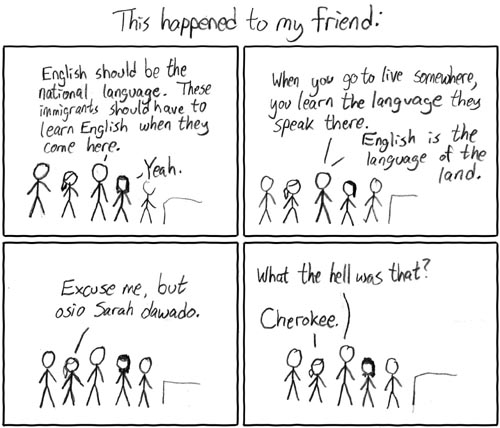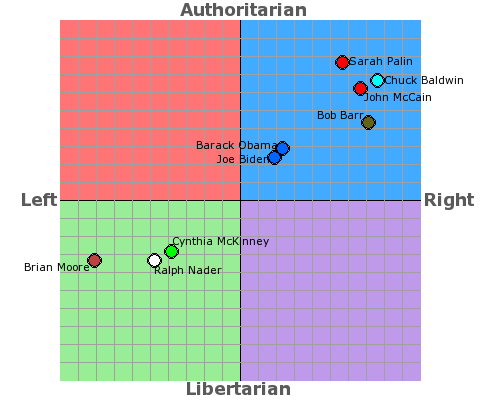- Pronoun
- she/her
Guys, art's not just for looking pretty at all. :C
Art (that is, visual art) has been used to comment on or express political, social, religious, environmental and technological issues throughout history! The Renaissance is so well known partially because it was a huge turning point for european art, as well as science, mathematics, astronomy and religion - but the most noticeable change that still exists today can be found in art. You can see the smallest beginnings of the feminist uprising as early as in the late 1800s in france, where the Impressionists began to take female artists seriously (albeit less seriously than their male counterparts). Most political changes in modern history have been expressed in art somehow.
Art isn't just limited to paintings or drawings either; musicians, directors, fashion designers, actors, dancers, florists, sculptors, interior designers and so much more need to have some kind of artistic training to be successful. Try being a musician without knowing what sounds good together or what has been done before you and why. Every musician is influenced by the music that preceded them from any genre. Art extends not only to the obvious places like watercolour painting and sculpture but far beyond that. Any man-made object that you have around you right now - the clothes you wear, the computer interface you're using, all of your furniture - has been designed meticulously. It's very rare that something you've purchased hasn't been designed with the utmost care. Colour, size, shape, and material have to be intertwined with ergonomics for it to be useful (and for it to sell), but I highly doubt that you'll find anything that's man-made and has no element of design in it.
For example, design is rampant in advertising. While aesthetic beauty is important, advertising thrives on fashion, which is rooted in both history and art. Advertising caters towards what's fashionable, and tries to tell you that.
In a human world, you could say that it's impossible for art not to exist, simply because everybody sees something differently and most would like to express that.
Art is also the most widespread form of communication that has virtually no language - you can look at a painting from India and regonise themes from it, even if they have no relevance on your lifestyle or culture. There are universal themes that are across art, ranging from the use of colour to human expressions. Stylistic differences will always come into play and can cause a communication breakdown, but how is that any different from a foreigner's thick accent or someone's messy handwriting?
Art is also one of the most successful ways to express an idea or perception about anything, because it is limitless. There is no end to art, and there never will be, as long as people keep coming up with new ideas. These people don't even have to be artists.
Art is also something hugely special because everybody will see something differently, but art is where it's most obvious. Consider the difference between this painting (Edouard Manet) and this print (Margaret Preston). They're both flowers, but why do you think they're different?
While it may be a waste of time to you, FireMario, I'm assuming you only think that because you have no idea what kind of effect it has on your life. Any kind of visual communication is related to art, even in a practical sense. Road signs have been rigorously designed so that people understand them, and they haven't done this through trial and error; they've gone back into the past and noted what was or wasn't successful, and what symbols were difficult for people to understand.
Don't say that art is pointless. It's one of the biggest facets of our culture and is entwined with nearly everything else.
I can't think of anything else but I'm sure I've missed something. :/
Art (that is, visual art) has been used to comment on or express political, social, religious, environmental and technological issues throughout history! The Renaissance is so well known partially because it was a huge turning point for european art, as well as science, mathematics, astronomy and religion - but the most noticeable change that still exists today can be found in art. You can see the smallest beginnings of the feminist uprising as early as in the late 1800s in france, where the Impressionists began to take female artists seriously (albeit less seriously than their male counterparts). Most political changes in modern history have been expressed in art somehow.
Art isn't just limited to paintings or drawings either; musicians, directors, fashion designers, actors, dancers, florists, sculptors, interior designers and so much more need to have some kind of artistic training to be successful. Try being a musician without knowing what sounds good together or what has been done before you and why. Every musician is influenced by the music that preceded them from any genre. Art extends not only to the obvious places like watercolour painting and sculpture but far beyond that. Any man-made object that you have around you right now - the clothes you wear, the computer interface you're using, all of your furniture - has been designed meticulously. It's very rare that something you've purchased hasn't been designed with the utmost care. Colour, size, shape, and material have to be intertwined with ergonomics for it to be useful (and for it to sell), but I highly doubt that you'll find anything that's man-made and has no element of design in it.
For example, design is rampant in advertising. While aesthetic beauty is important, advertising thrives on fashion, which is rooted in both history and art. Advertising caters towards what's fashionable, and tries to tell you that.
In a human world, you could say that it's impossible for art not to exist, simply because everybody sees something differently and most would like to express that.
Art is also the most widespread form of communication that has virtually no language - you can look at a painting from India and regonise themes from it, even if they have no relevance on your lifestyle or culture. There are universal themes that are across art, ranging from the use of colour to human expressions. Stylistic differences will always come into play and can cause a communication breakdown, but how is that any different from a foreigner's thick accent or someone's messy handwriting?
Art is also one of the most successful ways to express an idea or perception about anything, because it is limitless. There is no end to art, and there never will be, as long as people keep coming up with new ideas. These people don't even have to be artists.
Art is also something hugely special because everybody will see something differently, but art is where it's most obvious. Consider the difference between this painting (Edouard Manet) and this print (Margaret Preston). They're both flowers, but why do you think they're different?
While it may be a waste of time to you, FireMario, I'm assuming you only think that because you have no idea what kind of effect it has on your life. Any kind of visual communication is related to art, even in a practical sense. Road signs have been rigorously designed so that people understand them, and they haven't done this through trial and error; they've gone back into the past and noted what was or wasn't successful, and what symbols were difficult for people to understand.
Don't say that art is pointless. It's one of the biggest facets of our culture and is entwined with nearly everything else.
I can't think of anything else but I'm sure I've missed something. :/



